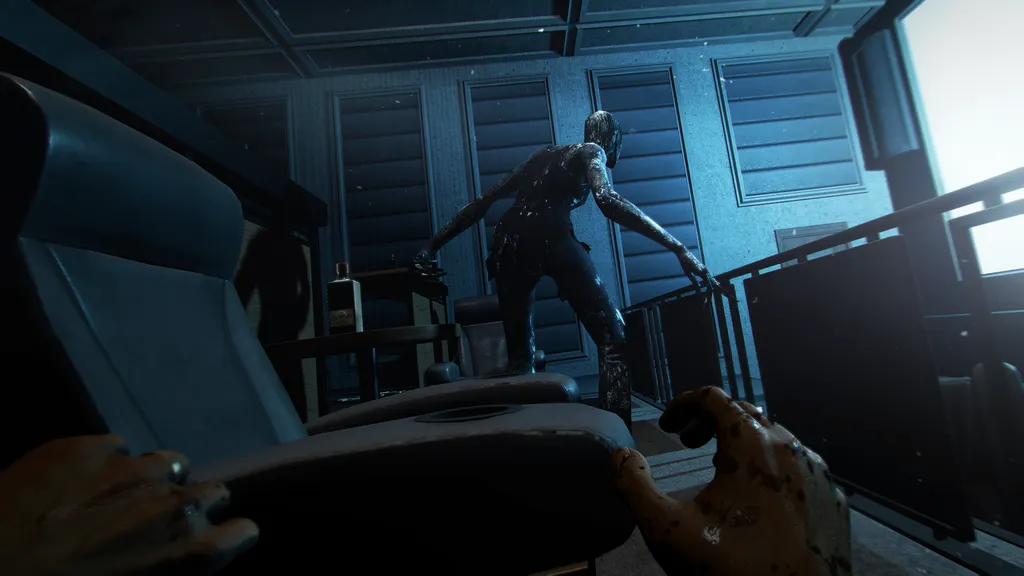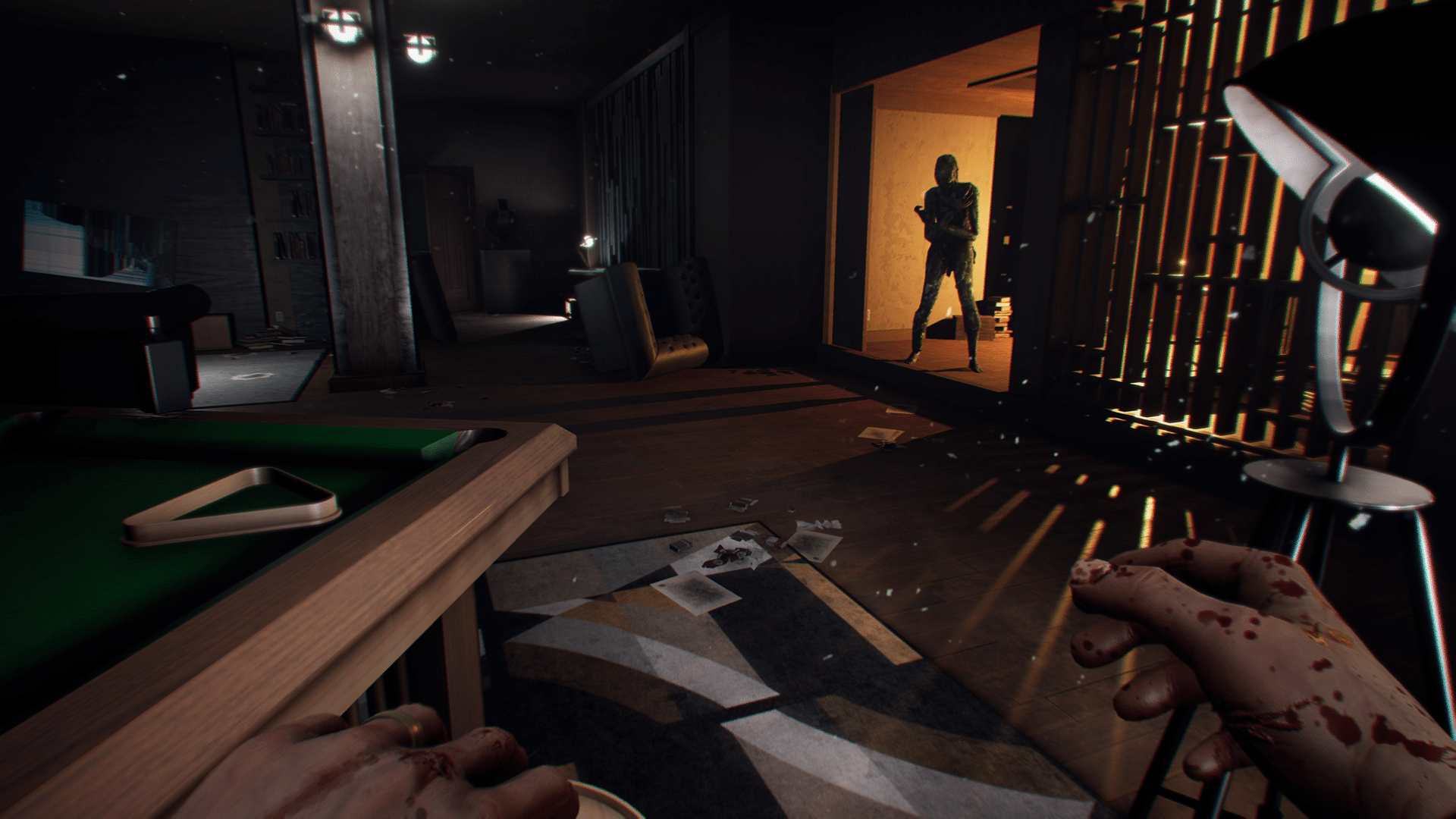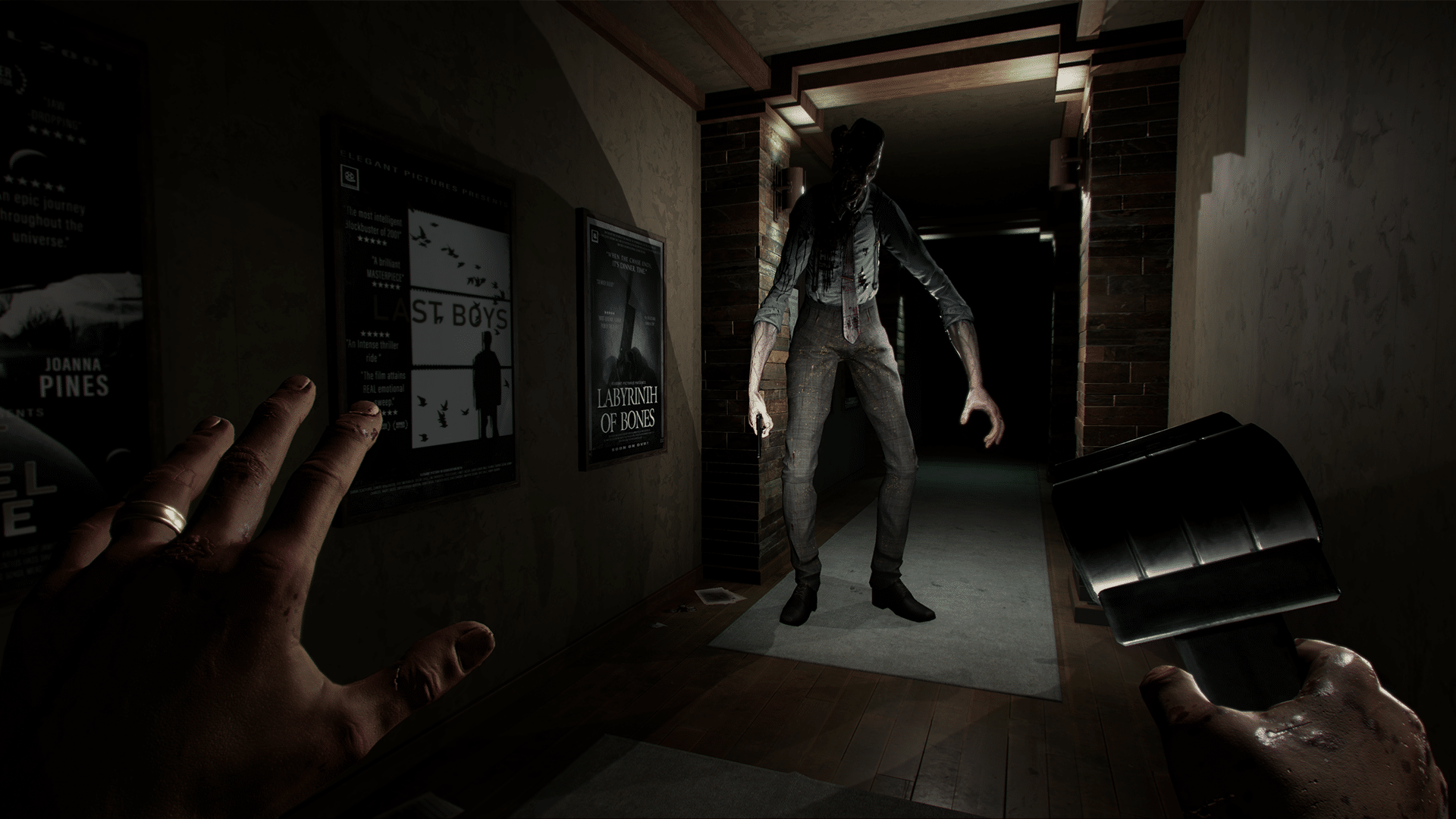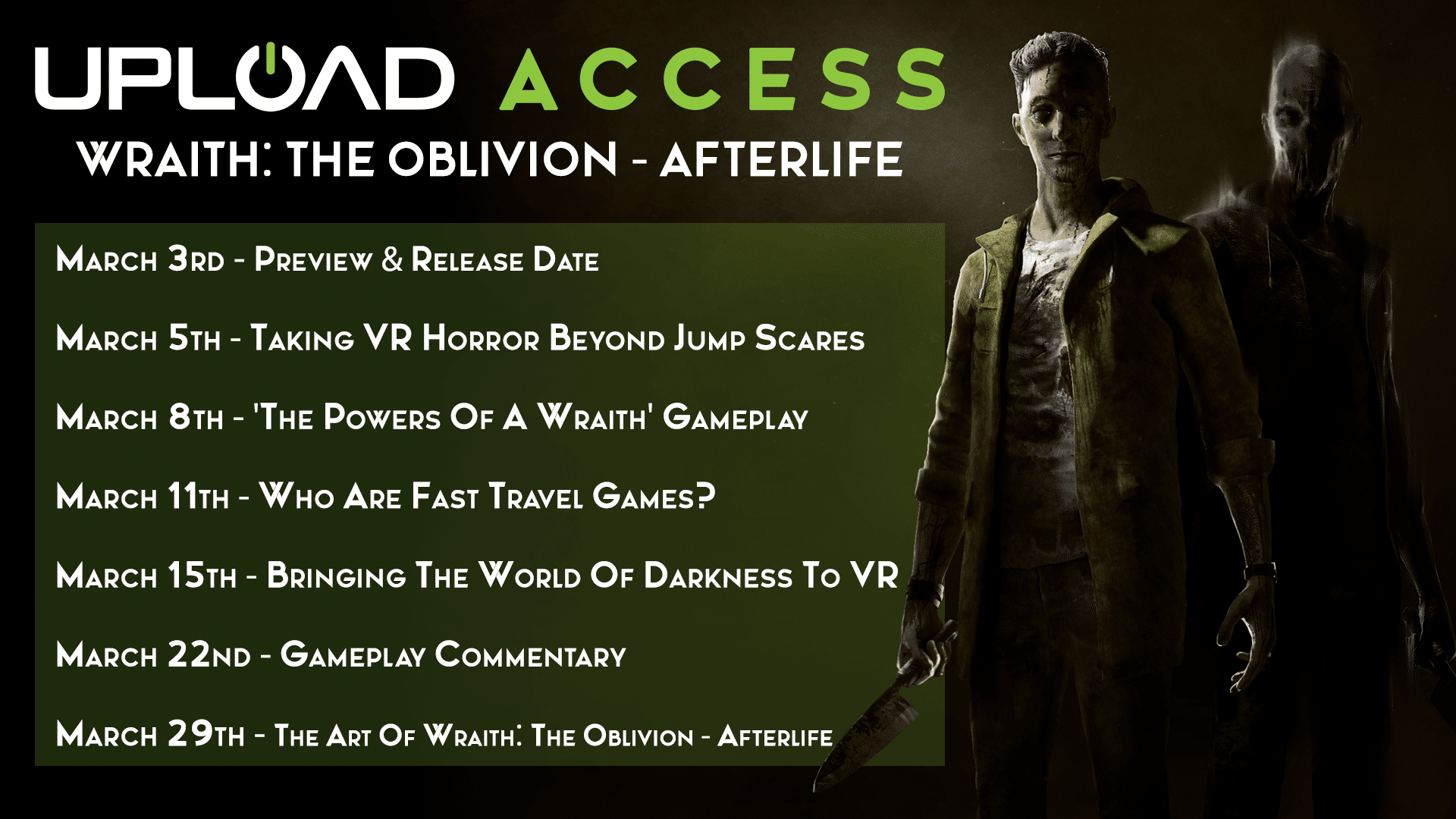The secret to any good horror experience is not to play your hand too early. When the air of the unknown lingers, tensions skyrocket. That’s where the real scares come from.
Interesting, then, that the first hour or so of Wraith: The Oblivion – Afterlife does tell you quite a lot about Fast Travel Games’ upcoming VR horror title. My first steps into the afterlife brought me face-to-face with quietly disturbing terrors and a heavy emphasis on narrative, not to mention some fantastic VR design and truly impressive visuals on Oculus Quest 2. But, crucially, it doesn’t feel like we’re getting the full story just yet. Fast Travel might be lulling us into a false sense of security – there are still cards clasped tightly to its chest.
Wraith — our first ever game to feature in our Upload Access series — is Fast Travel’s first turn at horror, and I’m sure you’ll agree quite different from the sci-fi adventuring of Apex Construct and the cutesy diorama worlds of The Curious Tale Of The Stolen Pets. But you wouldn’t know it from talking to the team; many of the Stockholm-based studio are masochistic horror aficionados, as you’ll see in our content coming this month. With Wraith, the first VR game set in the World of Darkness universe, the developer doesn’t want to settle for cheap jump scares and loud bangs but instead pursue a slower, moodier brand of horror.
The game’s first hour certainly sticks to this mantra. You play as Ed, a photographer summoned to the brooding Barclay Mansion to capture the events of a mysterious séance. Something goes wrong and, for lack of a better phrase, Ed ends up dead. Well, mostly dead; he returns to the physical realm as a wraith, capable of seeing past echoes of the world that fill in the mystery leading up to his demise, not to mention manipulating environments with supernatural powers.
Some of these powers are reframed versions of VR staples. Half-Life: Alyx’s wrist-flicking gravity gloves are put back to work, for example, and there is a really rather ingenious objective marker that has the controller vibrate and your heart race when you’re pointing your hand in the right direction. It’s a brilliantly organic idea (though sometime prone to leading you astray when you’re searching for items).
Other abilities encountered in the demo play to more Metroidvania sensibilities; retrieving Ed’s camera lets him capture old memories that reveal more of the story (and, in turn, allow you to progress), while a flashlight burns through mystical vines that root themselves in the most inconvenient places. The light is also handy against Spectres or, as I like to call them, deadly dead people. They’re Wraith’s main source of terror, resembling other members of the séance and suitably filling in for the horror trope of “Oh god please do not get anywhere near me you are revolting.”
All the ingredients are here for a tense VR adventure equal parts stealthy and spooky, then. Key to Wraith’s unsettling aroma is its imagery, which is among the most genuinely harrowing I’ve seen in VR. Spectre designs are ghoulishly detailed and there’s some absolutely incredible animation work behind some of the demo’s most memorably unpleasant moments which I don’t want to spoil here.
In fact, broadly speaking Wraith is easily one of the best-looking Quest 2 games I’ve seen so far; Fast Travel pulls off incredibly crisp texture work inside a mansion littered with ornaments and, well, litter. A sweeping view of the gardens from the balcony is particularly impressive but special mention has to go to the player’s hands, which spare no grimy detail with bloody cuts oozing and finger nail dirt gnawing away at my own personal sense of hygiene.
There will be an argument, I suspect, to playing Wraith on PC over standalone beyond the usual benefits, though. The opening hour of the game features mainly well-lit environments that provide a bit of a security blanket, while the few darker areas drop right down to pitch black. I haven’t seen the PC VR version, but if that edition of the game offered more nuance to the lighting effects that helped maintain a better atmosphere then that would be my preferred place to play. Fortunately the Quest version includes cross-buy with Rift, so you can always try that out with Link or VirtualDesktop, should you have a PC.
And, in fairness, Fast Travel is trying to make something people will actually play here. Yes, Wraith’s visual design is unnerving and it has all the ingredients for some serious scares, but the first hour of the game at least is completely free of cheap jumps and sudden bangs. It’s a carefully calculated concoction that allowed even me, a self-professed VR coward, to sheepishly continue on, keeping a fragile flame of confidence alive as I pulled back the door to another room.
To true horror devotees, that might be worrying. Even the demo’s closing encounter with a Spectre is an oddly manageable affair, mainly scripted and asking you to trace a linear path to safety.
Were this the only hint of the coming encounters in Wraith, I’d be a little concerned. But — and this is perhaps the most important point of the demo — the halls of Barclay Mansion carry a lot of hints about what’s to come. Broken glass peppers the floor of a party hall, crunching loudly under your footsteps, and a storeroom closet allows you to take shelter for — at the time — unknown reasons. Approach the walls in certain rooms and you might find shadowy decals bleeding into sight which, as we already know, will eventually allow you to traverse between areas.
All of this hints at something deeper and, yes, scarier than Wraith’s opening hour. Fast Travel has the foundation for a troubling horror throwback with a layered approach to stealth and a memorable VR location to explore, it’s just a question of if it will meet that potential. So much of Wraith is still unknown, and that’s exactly where it should be.
Wraith arrives on Oculus Quest and Rift on April 22 for $29.99. It’s coming to SteamVR on May 25 and PSVR a little later on in the year.





























